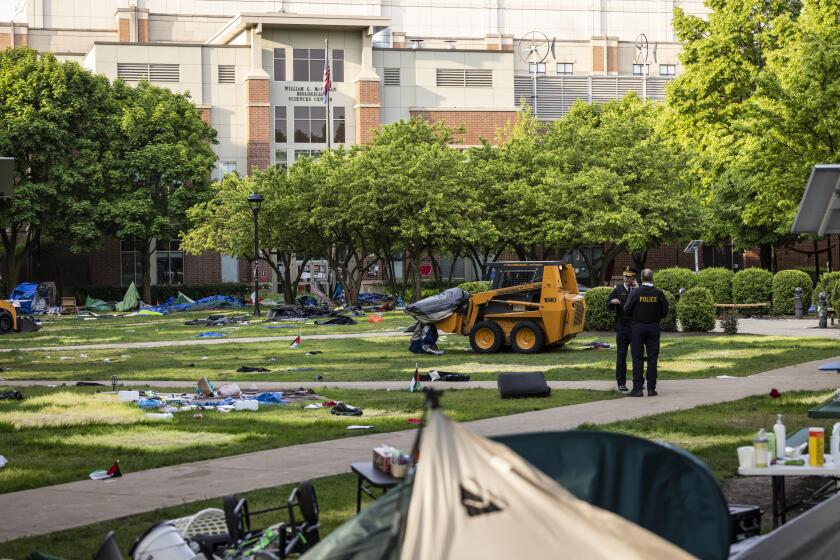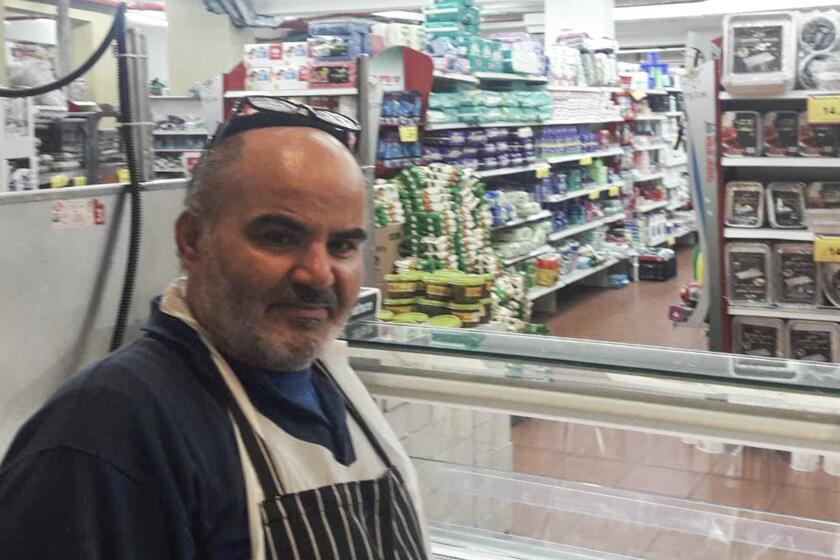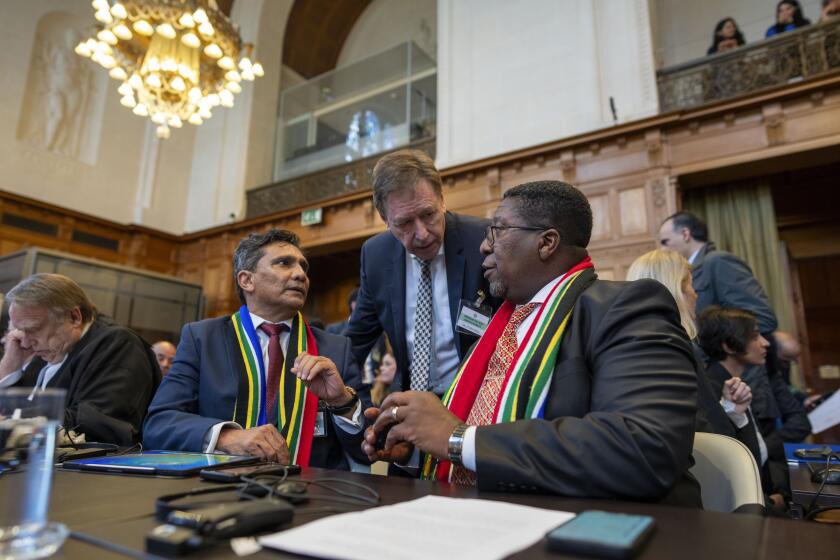Leader of ’93 Russian Revolt Wins Election
Alexander V. Rutskoi, the Afghan War hero and former vice president who led an armed uprising against Russian President Boris N. Yeltsin three years ago, staged a stunning political comeback Monday, winning a regional governorship in the worst of several electoral setbacks for the Kremlin.
With his landslide victory in the gubernatorial contest in the Kursk region, about 230 miles south of Moscow, Rutskoi, a hard-line nationalist and retired air force general, also wins a seat in the upper house of parliament and a platform for launching new attacks on his ailing nemesis, Yeltsin.
“It was the will of the electorate” was all that Yeltsin’s spokesman, Sergei V. Yastrzhembsky, would say of the Rutskoi victory and two other regional contests in which opposition candidates beat presidential appointees.
Communists and nationalists control the Duma, the lower house of parliament, and with 52 regional governorships being decided this fall, the Federation Council is also at risk of falling into opposition hands.
The strengthening forces of opposition in the legislature have already rejected Yeltsin’s 1997 budget proposal and have been dragging their feet on other vital bills that would provide more security for foreign investors, reform the prohibitive and ineffective tax system and make it easier for Russians to buy land.
Apparently fearing political gridlock during his impending heart bypass operation, Yeltsin on Monday proposed creating a special consultative group that would bring the leaders of the two houses of parliament together at least twice a month with Prime Minister Viktor S. Chernomyrdin and Kremlin Chief of Staff Anatoly B. Chubais to work out differences between the executive and legislative forces. Yeltsin unveiled this idea in a half-hour meeting with Gennady N. Seleznyov, the Communist chairman of the Duma, at the suburban sanatorium where the president is resting.
In a surprisingly positive assessment, Seleznyov told journalists that Yeltsin looked well and was clearly in full command of the Kremlin despite his illness. The 65-year-old president appeared briefly on television at the start of his talks with Seleznyov and sounded more lucid than during his Thursday announcement that he was firing maverick Security Council chief Alexander I. Lebed.
Until Sunday’s handful of regional votes, the victors in a dozen other gubernatorial races this autumn were evenly split between the Yeltsin and opposition camps.
Rutskoi garnered 79% of the vote in the four-man race in Kursk. Opponents of candidates backed by the Kremlin also prevailed in the Kirov and Kaliningrad regions, and a runoff will be needed in the Pskov region.
Although Yeltsin decisively won reelection less than four months ago, his declining health has kept him out of the Kremlin since then, and his plans for surgery later this year have raised concerns that another presidential contest may soon be needed.
The stocky, mustachioed Rutskoi led a revolt against Yeltsin in October 1993 after the president disbanded a hard-line parliament that was blocking proposed reforms. The army then sided with Yeltsin. Rutskoi and other leaders of the uprising were jailed until they were freed by a parliamentary amnesty in February 1994.
If both houses of parliament again fall into opposition control, Yeltsin’s only recourse for breaking legislative gridlock would be to disband them. But the army is now fractured, poorly supplied and often unpaid, provoking fears it could not be counted on in the event of a similar political crisis.
More to Read
Start your day right
Sign up for Essential California for news, features and recommendations from the L.A. Times and beyond in your inbox six days a week.
You may occasionally receive promotional content from the Los Angeles Times.







